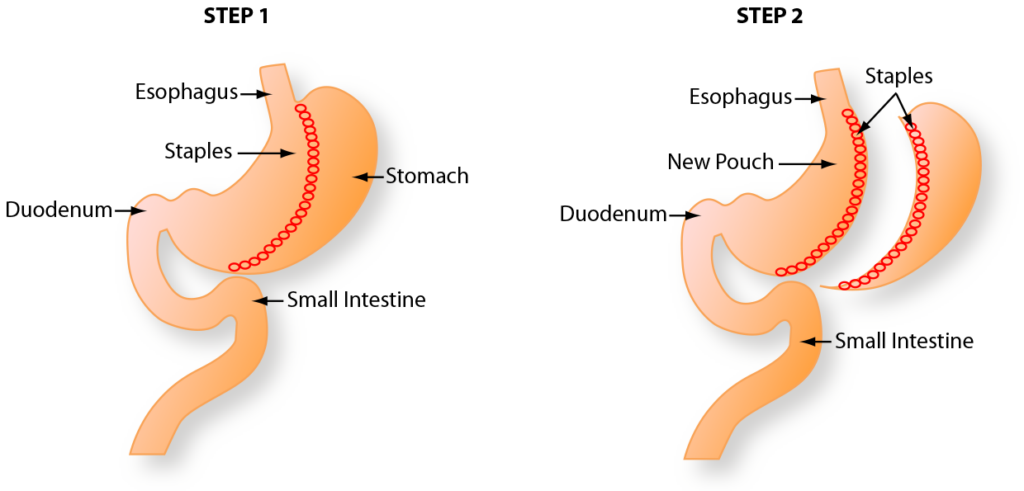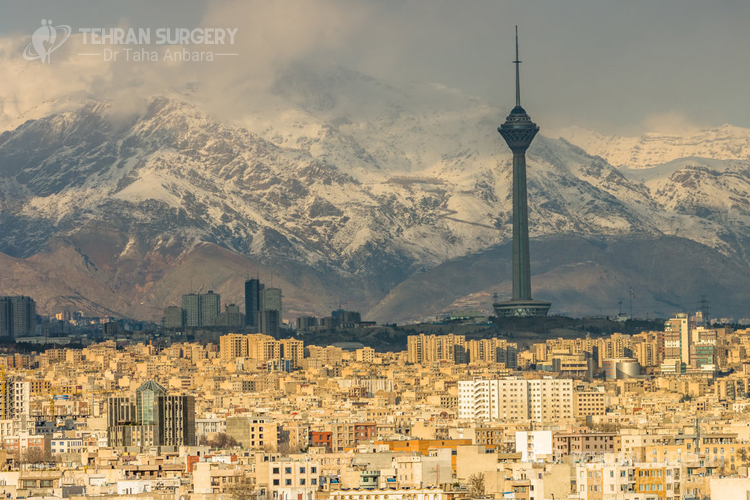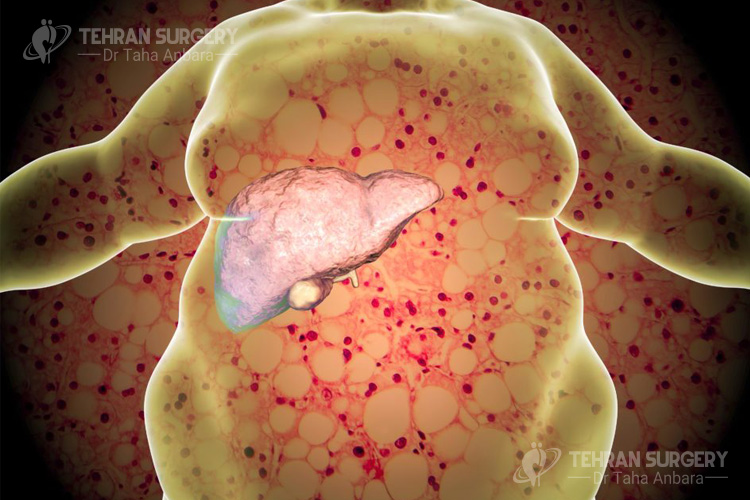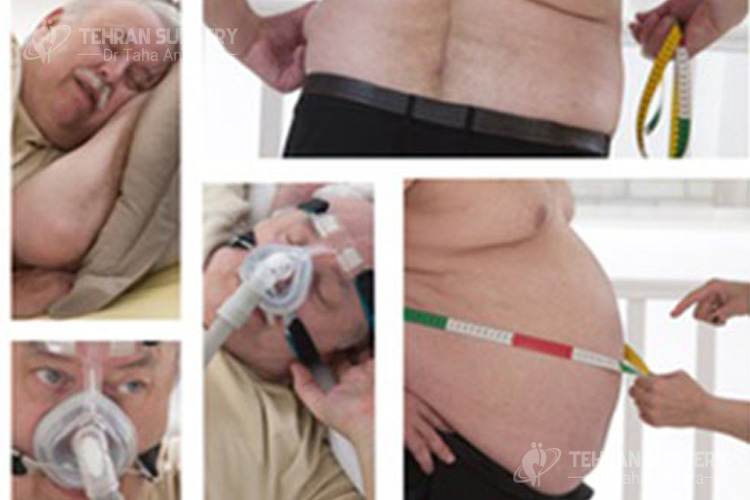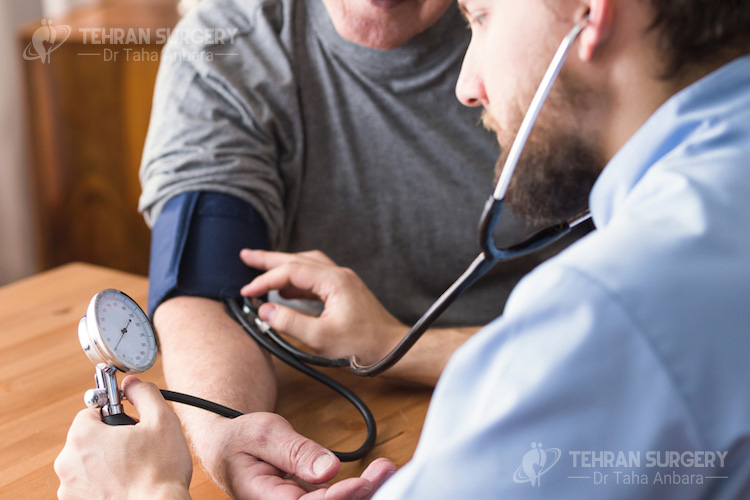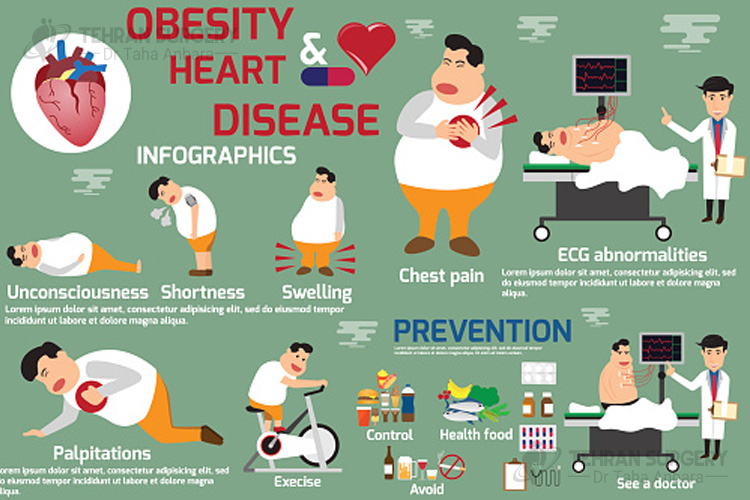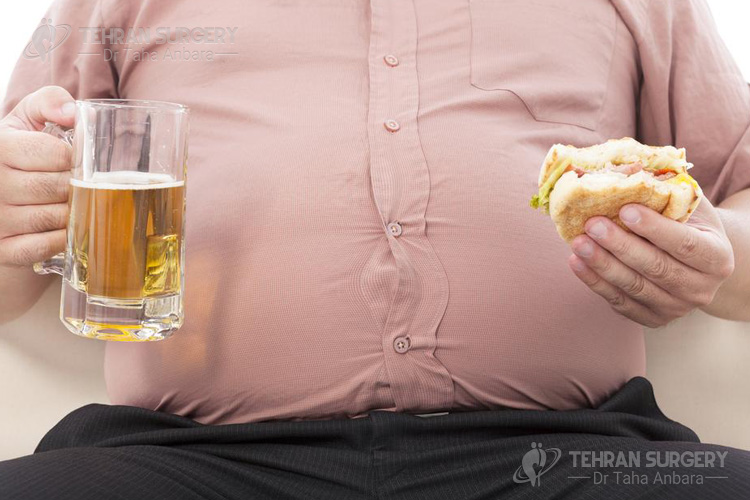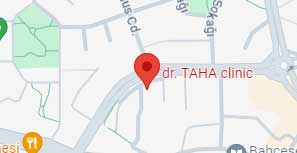
Gastric sleeve surgery
Sleeve gastrectomy also called gastric sleeve surgery is a type of weight loss surgery that involves the removal of a large part of your stomach. During the sleeve gastrectomy that typically performed laparoscopically, the surgeon removes about 80 percent of the stomach and just a tube-shaped stomach about the size and shape of the banana is left. By limiting the size of the stomach the patients can eat less food and feel full sooner.
You are an eligible candidate for sleeve gastrectomy if:
- Your body mass index (BMI) is 40 or higher
- Your BMI is 35 and you have a serious health-related problem associated with obesity such as high blood pressure, sleep apnea and type 2 diabetes.
Gastric sleeve surgery risks
Like any other surgery, there are some risks associated with sleeve gastrectomy including short term and long term complications.
Short term complications with gastric sleeve surgery are:
- Infection
- Blood clot
- Excessive bleeding
- Leakage of digestive contents from the cut edge of the stomach
And long term complications can include:
- Low blood sugar
- Vomiting
- Hernias
- Malnutrition
Benefits of gastric sleeve surgery
After gastric sleeve surgery, you eat less that will reduce your calorie intake. After this surgery, you can eat most foods and there is not much limitation, but you can eat in small amounts. It is also very effective to improve some weight-related problems such as high blood pressure, type 2 diabetes and sleep apnea. Sleeve gastrectomy is a rapid and effective weight loss surgery and patients can lose about 50% or more of their excess weight in three years.
Sleeve surgery recovery time
The recovery time after sleeve surgery is almost quick. You have to stay at hospital 1-2 days after the surgery. First days you may have some pain around incisions but it will treat with pain medicine. Generally, your recovery time depending on some factors such as your age, health condition, and malnutrition. Usually, malnutrition may occur after weight loss surgery due to lack of vitamins and mineral. You can prevent this condition by following a diet rich in high nutrient foods.
Sleeve surgery scars
Gastric sleeve surgery usually is laparoscopy. Open gastric sleeve surgery is rarely performed with one long incision across the abdominal area. Laparoscopic gastric sleeve surgery is performed with a single incision (small incision usually inside of the belly) or multiple incisions (standard gastric sleeve made between 3-5 small incisions across the abdominal area to enter trocars and a laparoscope). Depending on the type of sleeve the size of the incision is about an inch long and the process of healing scars depending on your body health.
For treating your scars, you can use of antiseptic spray and wash your scars with soap and water every day and left them open to the air, avoid sun on scars and don’t pick scabs. After healing your scars, you can minimize scarring by different oils, vitamin E or even laser treatment. But you should pay attention that minimizing scars should be done after the healing process.
Sleeve surgery pre-op & post-op diet
If you are considering bariatric surgery you have to follow a pre-op diet as well as post-op diet. It is very important that you observe a specific pre-op diet before your sleeve surgery because you need to shrink your liver and reduce the fat in your abdomen. A big liver increase the risk of surgery and much fat in your abdomen make the operation difficult for your surgeon. So you must follow your surgeon recommendation about the pre-op diet before sleeve surgery. This diet is according to your health condition and how much fat you need to lose before the surgery.
Pre-op diet
Usually you have to start your pre-op diet a few weeks (2-3 weeks) before the surgery that should include: increase your protein consumption, reduce your calorie intake, decrease your carbohydrate consumption, eliminate sugars, eating more protein and fewer carbs, drinking more water and clear liquids and you should avoid foods with high carbohydrates and starches as well as high in sugar and fat before sleeve surgery. You also need to stop using caffeine and carbonated beverages prior to the surgery.
Post-op diet
Following sleeve surgery, your lifestyle will change and you have to change your diet. Immediately after sleeve surgery, you can’t eat much. The first week following your surgery your diet is limited only to clear liquids such as water, decaf coffee, sugar-free drink. It is difficult, although after surgery the hunger hormone ghrelin doesn’t exist and most patients have very little desire to eat.
During the second week, you can add a thicker drink and soft foods such as protein powder mixed with a sugar-free non-carbonated clear liquid, nonfat yogurt, soup with soft noodles, sugar-free pudding, nonfat ice cream.
For the third week, you can start eating soft pureed foods but still, you should limit sugar and fats. You can eat soft vegetables, mashed fruit, low-fat cheese, protein shake, pureed egg salad, soups, soft fish, ground chicken or beef and hummus.
Within the fourth week, you can carefully test eating solid food such as mashed and baked potatoes, any type of fish, fruits, chicken and beef (very slowly and chew carefully), you can start eating limited caffeine, and continue your daily protein shakes.
For week 5 and beyond you can start to eat foods one by one to check how well your stomach can tolerate.
Generally, gastric sleeve surgery is the most common type of bariatric surgery, that you can improve your appearance and lifestyle and also treat the related health problems with obesity. If you are thinking to sleeve gastrectomy surgery but you can’t pay its expense, no need to worry. There is always a good solution, you can have a cost-effective surgery in another country with expert weight loss surgeons in equipped hospitals. For example, the cost of gastric sleeve surgery by Dr. Anbara is about $3500 in Iran. It is the best time to change your world.

